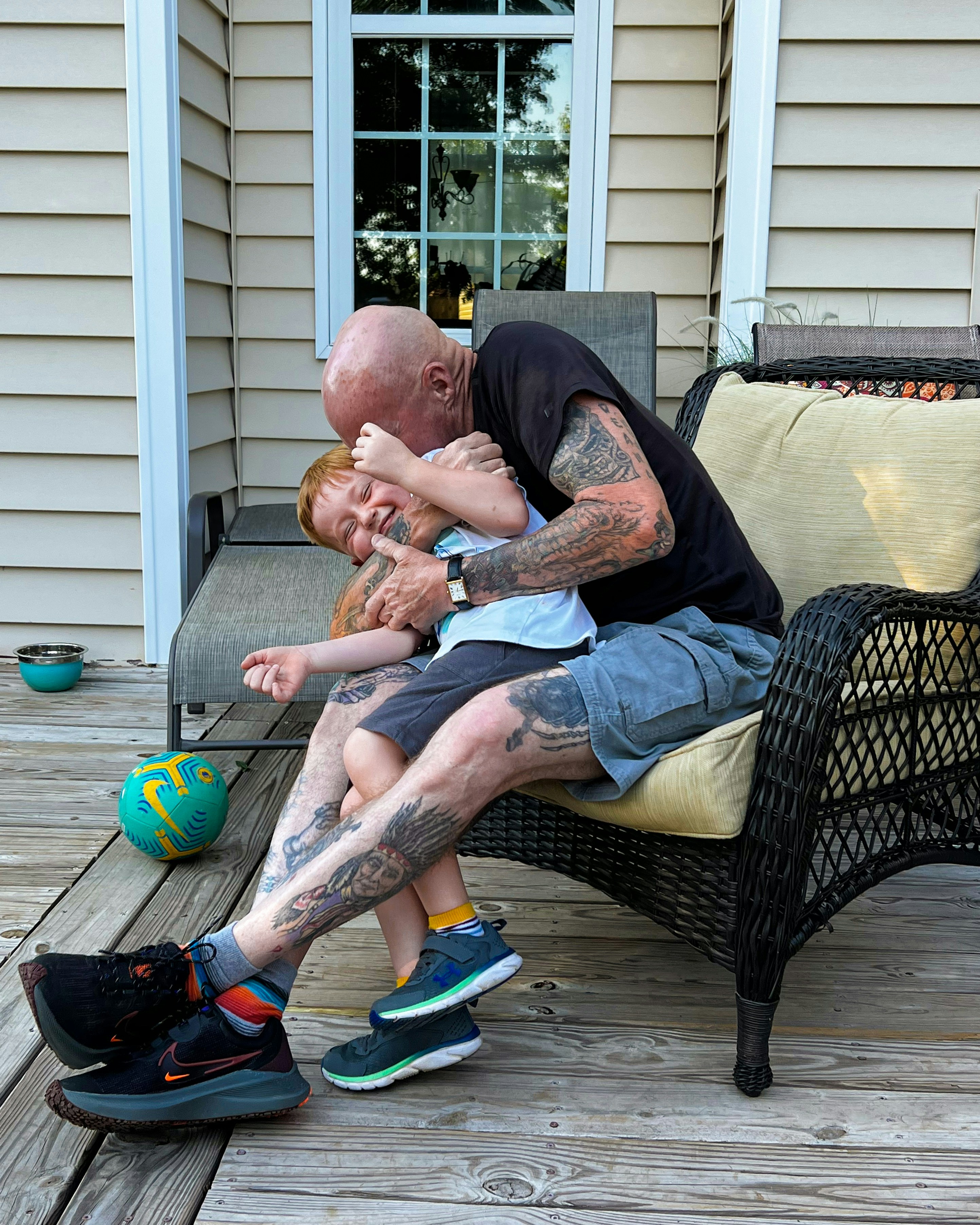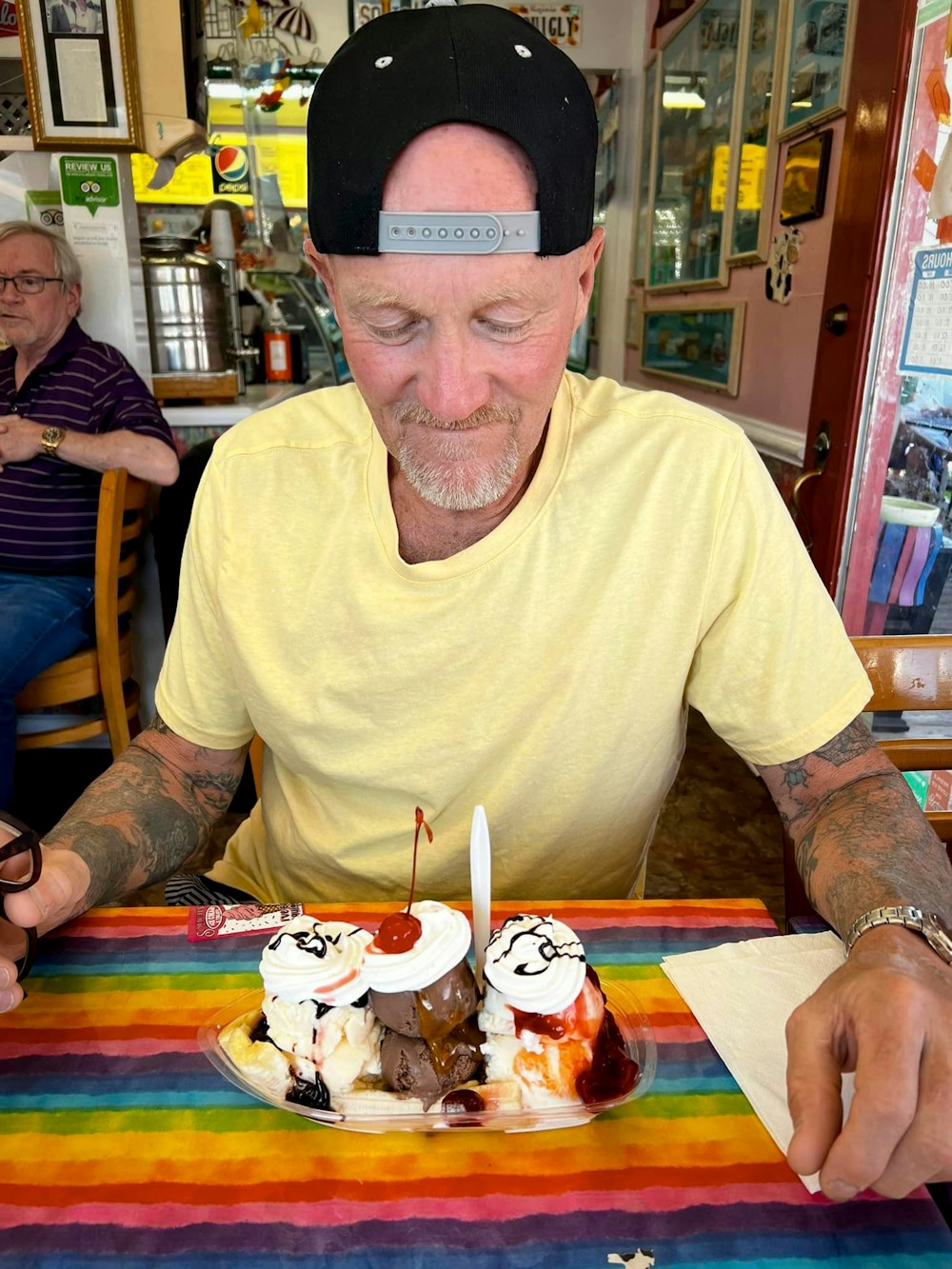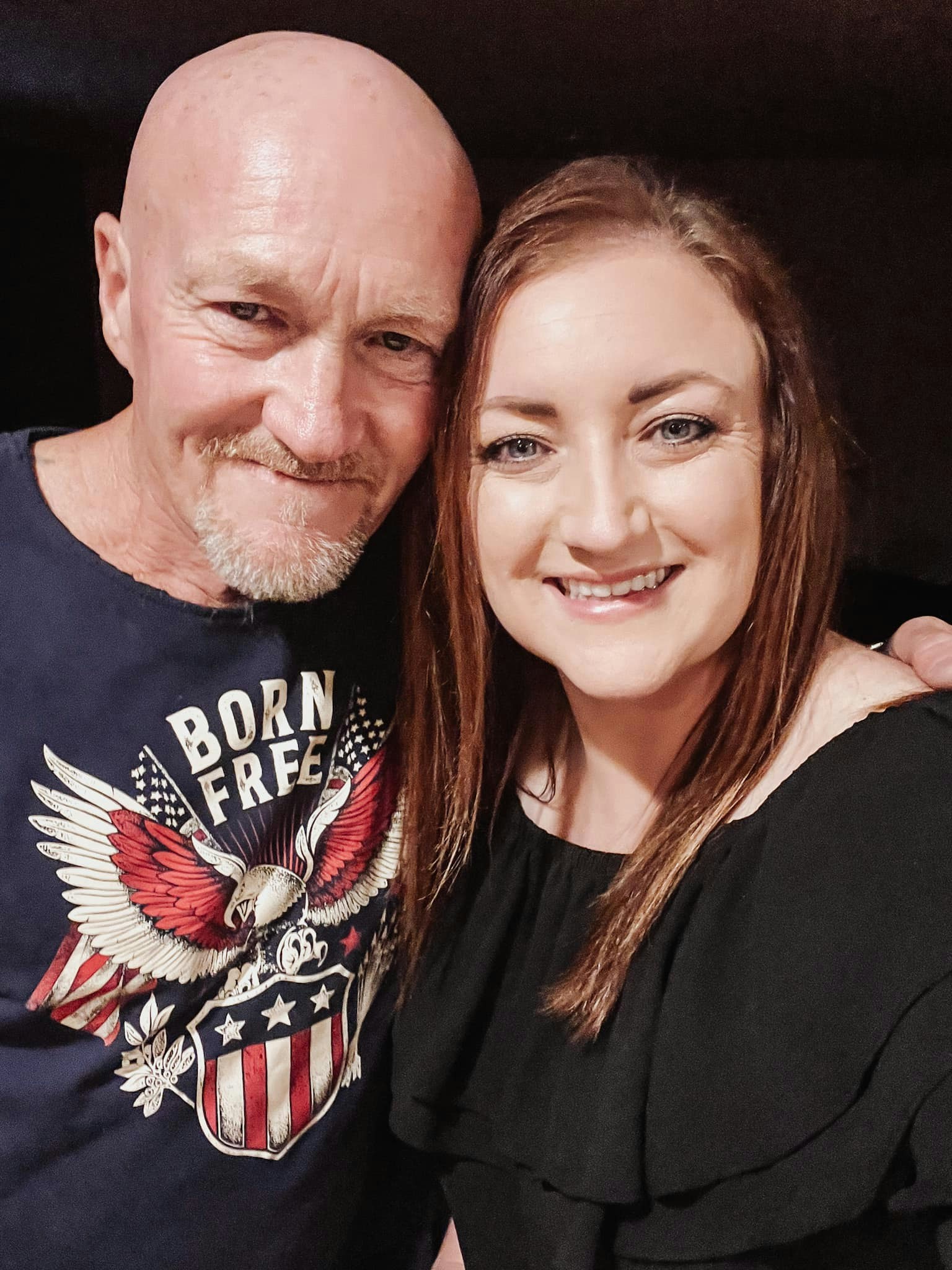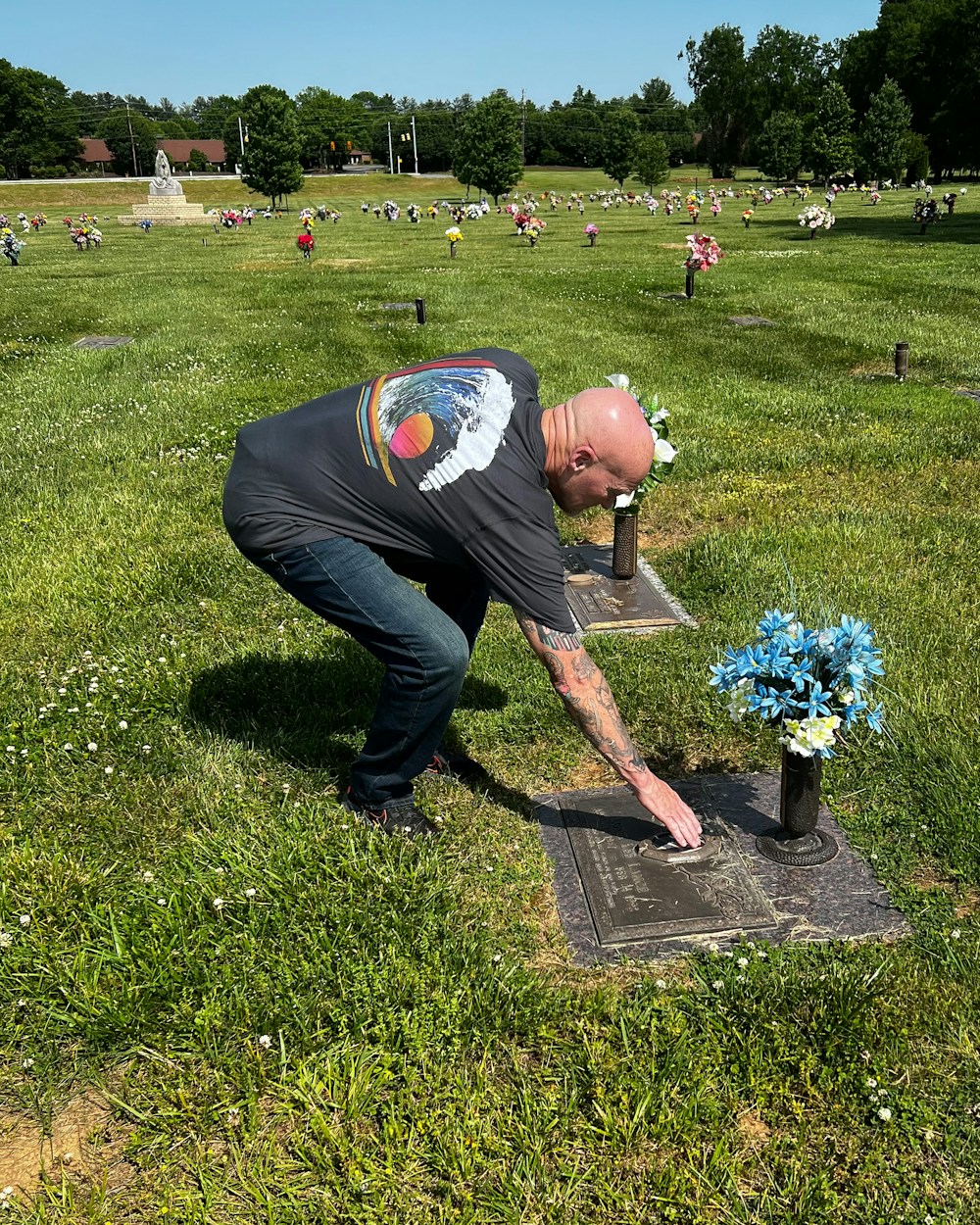Just over a year ago, on May 10, Claude Garrett walked out of the Riverbend Maximum Security Institution in Nashville, Tennessee, and into the arms of his daughter, Deana. Exonerated after 30 years for a murder he always swore he did not commit, Claude had fought tirelessly for his freedom. After two trials, decades of appeals, and an unsuccessful parole hearing in 2018, it ultimately took an admission from the same office that convicted him that the case was bogus for him to finally be released.
Waiting for him outside the prison alongside his daughter were lawyers with the Tennessee Innocence Project as well as Claude’s most devoted advocates: his pen pal-turned-mentor, Denny Griswold, and his loyal friend and staunch supporter, veteran fire investigator Stuart Bayne. There were hugs and handshakes and some brief words for the press. Then he got into Deana’s car and rode away.
Claude spent the next few months making up for lost time. He swam in the ocean on Father’s Day and played basketball on the Fourth of July. He stared at the stars with Deana and wrestled and took selfies with his grandson. He went to church with Denny, whose prison ministry first brought them together. And he visited the grave of his mother, Betty, who had always hoped to see him exonerated.
Claude also got good at texting. He sent memes and funny messages and inspirational quotes. “Surround yourself with people who push you to do and be better,” read one he sent me last summer. “No drama and negativity. Just higher goals and higher motivation.”
I first met Claude at Riverbend while working on a piece about his case. Published in 2015, my investigation told the story of how he had been sent to prison for life for the murder of his girlfriend, Lorie Lance, who died in a fire in the couple’s home outside Nashville in 1992. His conviction was rooted in junk science — evidence once believed to indicate arson that had since been debunked. Eventually my coverage caught the attention of the local district attorney, whose conviction review unit reinvestigated the case. By the time Claude walked out of prison, we had been talking for nine years. But in many ways, I was only just starting to know him.
Early one morning in mid-September, Claude called out of the blue and asked if I wanted to meet for coffee. A couple of hours later, we were on the patio of a cafe downtown. It was a beautiful, clear day. One of Nashville’s major music events, AMERICANAFEST, was underway, and the place was packed. But Claude didn’t mind. He was taking it in, enjoying the scene. “Everybody’s out, moving around, enjoying life,” he said.
Claude had tried to keep a low profile after his release. He’d gone to North Carolina, where Deana lived, and had only recently moved with her family to Clarksville, northwest of Nashville. Deana, who ran a real estate agency, set him up in a rental property. He got a used car and a job doing plumbing and electric work — labor he’d done in prison for years. And he tried to help Deana when she needed it. She loved Halloween and started decorating well in advance. So that morning he’d gone to a Halloween store. He smiled mischievously revealing his costume for Deana’s upcoming party. “I want to go as a cop,” he said.
In early October, Garrett texted to say that the Tennessee Innocence Project was holding its annual fundraising gala. It seemed like an exciting opportunity to celebrate his release. But in truth, he was ambivalent about attending. For years he’d told people, “I don’t want to be anyone’s pet convict.” As proud as he was of his exoneration, he did not want to be defined by it.
In the end, he decided to go anyway. He took his friend Norman, whom he’d met in prison, as his guest. At the table alongside exonerees, Norman felt a little out of place (“I was the only one who was guilty”), but they had a good time. At one point the two accidentally locked themselves out of the enormous Music City Center and had to walk around the building. Norman, a lifelong smoker, was huffing and puffing. Claude teased him, asking, “Are you sure you’re going to make it?”
Three days later, on October 30, I was in my car getting ready to drive back to Nashville from New York when I got another text message. It came from Stuart’s wife, Gigi. Deana had called. “Claude passed away last night,” she said. He’d gone to the Halloween party and had a great time. Then he fell asleep and never woke up.

Claude Garrett plays with his 4-year-old grandson in North Carolina in May 2022.
Photo: Courtesy of Deana Watson
Just Starting Over
In many ways, Claude was luckier than most people who leave prison after decades. He had a job. He had a place to live. And he had the support of family and friends. “If every person that was released had the same opportunities that I had when I walked out that door, the recidivism rate would be 0.0 something,” Claude told me. Most of the time, “nobody is standing at the door to welcome them home and say, ‘Hey man, come with me, I’m gonna take care of you.’”
But even the best of circumstances couldn’t make up for the impact of incarceration. At 65, Claude carried untold physical and psychological trauma. Studies have long shown that prison ages people prematurely. For people who spend decades in prison under a wrongful conviction, the stress does not go simply go away after release. According to the Innocence Project, “Many suffer from post-traumatic stress disorder, institutionalization, and depression.”
Claude spent his first 30 days of freedom acutely aware that the Tennessee attorney general could appeal the decision to vacate his conviction. He went out of his way not to say anything publicly that could make him a target of backlash, especially about state authorities. When I told him I was struck by the fact that he had eaten his first strawberry in 30 years, he said he didn’t want to be quoted criticizing the Department of Correction for not providing fresh fruit. “That’s part of the system,” he said. “And that can be interpreted in many ways.”
A lot of stress seemed to dissipate after the state’s deadline to appeal passed. “All agree that it is officially official,” he texted me on June 11. “Free at last!” Yet the challenge of navigating his new surroundings was only beginning. On his first morning after leaving prison, he woke up before 4 a.m. and went to the garage to work out, only to set off the home security system. The next night, he was jolted out of bed by the sound of the ice machine. The house was just so quiet. He had not experienced that level of silence in 30 years.
Claude and Deana laughed about these things at the time. They told me about a failed first attempt to get a cellphone; Claude got fed up at the Verizon store after seeing a man appear to cut the line. “He said, ‘Shit, I’ll stop at a payphone,’” Deana said. “And I’m like, ‘No you won’t, they don’t work! They don’t exist!’” It didn’t dawn on Claude until later that the man probably had an appointment. He didn’t know it worked that way. There were a lot of situations like that. There should be lessons for people leaving prison, Claude told me. “A dinosaur like me? No idea.”
In retrospect, there were signs that Claude was struggling more than he let on. He was staying home at lot, he told me in September. “I still don’t feel comfortable getting out by myself.” If something bad were to occur in a place he happened to be, “Somebody’s going to say, ‘Well, he was here.’” And he avoided any potential run-ins with police, even if it meant driving 55 miles an hour on the highway. A lot of drivers are “just nuts,” he said, before conceding that the same could be said about him. “I’m not kicking dirt on them without getting dirt on me. Because sometimes I’m nuts too.”
He did have something motivating him: a new legal fight that he wasn’t ready to discuss publicly. He’d consulted with an attorney who planned to help him win compensation. In Tennessee, a person who is wrongfully convicted must be formally exonerated by the governor before they are eligible to receive money from the state. There was no way Gov. Bill Lee would do that in 2022 — an election year, Claude said. But this was his next big goal. It wasn’t just about the money, although “I do believe that they owe me.” They also owed Deana, who was 5 years old when he went to prison. By taking her father away for so long, “her life was stolen too.”
Otherwise, Claude was taking things one day at a time. He was thinking of getting a motorcycle and a dog; maybe chickens his grandson could chase in the backyard. And he was trying to stay healthy, just like he’d done in prison. The day before we met for coffee, he’d toured a Planet Fitness. He liked that it was open 24 hours (he was still getting up before 4 a.m.). But he hadn’t signed up yet. When he told the gym employee that he didn’t have a bank card, “he looked at me like I was an alien,” Claude said. “And I just told him, ‘Look man, I was in prison for 30 years for something I didn’t do. … I’m just starting over.’”

Claude Garrett has a banana split on Father’s Day weekend in Carolina Beach, N.C.
Photo: Courtesy of Deana Watson
Only So Much Time
Claude’s memorial service was held on November 5 in Springfield, Tennessee. There were colorful index cards at the funeral home for people to share memories of Claude, “aka Shorty,” as he was nicknamed when he was younger. In lieu of flowers, Deana asked guests to consider donating to the Tennessee Innocence Project.
The funeral was packed. Country music ballads opened and closed the service (“Even Though I’m Leaving” by Luke Combs and “You Should Be Here” by Cole Swindell). Deana thanked everyone who had worked to exonerate her father. “You gave a man his life back,” she said. Members of Claude’s family in Kansas spoke; a nephew who had sent Claude a typewriter recalled how he typed all his letters despite having “amazing penmanship.” A cousin who had fought with Claude as a kid remembered the beautiful cards he mailed to her while she was being treated for cancer.
A month after Claude’s funeral, I visited Norman at the halfway house where he lives and works. There was a Christmas tree in the living room, a reminder of the holidays Claude did not get to see as a free man. For a long time while Claude was in prison, Norman planned to save a room for him there. He showed me some letters and leatherwork Claude had sent him over the years. Deana had also given him a bunch of Claude’s clothes, which were piled in his bedroom. “People come in here and don’t have nothing,” he said.
Norman was distraught by Claude’s death. The two had been trusted friends on the inside and outside. He was one of the few people in Claude’s life who understood how destabilizing it could be to leave prison and find the world around you changed. “You don’t see that when you’re in there. You think everything is just the same.” Norman remembered feeling completely overwhelmed. He didn’t want to go back, but “I didn’t feel like I belonged out here either.”
He was still grasping for explanations. He imagined that being wrongfully incarcerated would compound the stress of living behind bars. “You’re in a place you shouldn’t be. And you’re in there 24 hours a day thinking about it, trying to get out. I mean, he fought every day for 29 and a half years. So I imagine it did take a toll on him, some way or another.”
There was no such thing as preventative medical care in prison, Norman said. Norman, who is about two years younger than Claude, didn’t know he had chronic obstructive pulmonary disease until he’d been out for two years. Today he sees a primary care doctor and lung specialist and gets regular blood tests. In prison, “unless somebody stabs you, you ain’t gonna get no blood test.”
A few days later, I went to see Stuart Bayne, the fire investigator, at his home in East Tennessee. He showed me his office, where he’d worked for so many years on Claude’s case. Since 2001, when he was hired as the expert witness for Claude’s retrial, Stuart had firmly believed in his innocence. After Claude was convicted again, Stuart became consumed with correcting what he saw as a profound miscarriage of justice. It had been his life’s mission ever since.
Like everyone who was still processing Claude’s death, Stuart was stricken by the unfairness of it all. Claude had been so patient — so hardworking and focused. He believed he would live another 20 years. “I haven’t told my poker group yet,” Stuart confessed. Claude was supposed to join one of their game nights. But he took comfort in the fact that Claude had gotten to come over for a home-cooked meal. Over years of phone conversations while Claude was in prison, “he wanted to know everything Gigi was making whenever he called.”
Stuart had no recollection of the moment he’d learned of Claude’s death. It was such a shock, his wife told me. Stuart could not grasp what Deana was saying until Gigi told him, “Honey, she’s talking about Claude.” They got the news while at a fire investigators conference in Alabama, where Stuart was supposed to speak about Claude’s case. Somehow, he moved forward with the presentation, deciding to close by revealing what had happened: a reminder that “we only have so much time we get in this here world and we better use it as best we can.”

Claude Garrett and his daughter, Deana Watson, in Hiawatha, Kan., in August 2022.
Photo: Courtesy of Deana Watson
A Chance to Grieve
In early January, I went to see Deana at her home in Clarksville. In the years I knew Claude, he never wanted me to include her in my articles. He wanted to protect her. But she had come to believe that families like hers needed to share their stories. His wrongful conviction had shaped her too. And as much as Claude wanted to move on with his life after prison, she told him, “If you don’t tell this story, nothing changes.”
Deana had given me a photo album that told the story of Claude’s last five months, from his first breath of fresh air outside Riverbend to the Halloween party. When he walked in wearing his police costume that night, “people were rolling laughing,” she said. He was still wearing it when she found him the next morning.
Deana was trying not to dwell on questions she couldn’t answer. The autopsy results had not come back yet. “I have not let myself think about this very much,” she said. But Claude’s family had a history of heart problems. When Deana went to clean out his house, she found blood pressure medication he’d brought from Riverbend that had not been refilled. She remembered him saying that he could not go to the doctor until his insurance kicked in, which would have been November 1, just two days after he died.
The thought that Claude had left prison only to find himself without the medication he needed felt like too cruel an irony. But Deana also knew that his death was not the result of any one thing. On his last night alive, he’d been “the life of the party,” talking to everyone and making s’mores with the kids, although he was wary of fires. She reiterated what she said at the funeral: He was the happiest he’d ever been.
Still, things had not been perfect. Helping Deana with her Halloween decorations, which included a pair of 12-foot skeletons, he protested in jest. “He’s like, ‘This is a sickness. … Did I do something wrong in your childhood?’” she laughed. “And I’m like, ‘I mean, you did go to prison.’” By October, they had begun arguing in earnest. Deana could see his anger and trauma surfacing in ways that were hard to comprehend. One day he said, “I can’t believe no one is talking about Lorie.” Deana realized he had only just started processing her death. He insisted on visiting her grave the day after he left prison, searching frantically to find it. When he did, he stood there for a long time. In all the decades he spent fighting, he never had a chance to grieve.

Claude Garrett visits the grave of Lorie Lance.
Photo: Courtesy of Deana Watson
The findings didn’t bring much closure. Deana found more comfort in letters she’d sent him in prison, which she found at his house. She had written them in her early 20s, while trying to forge a relationship with a father she’d never really known. At that time, she could not have imagined all the things she would eventually do with him. If he ever got out, she wrote, she wanted to go to the beach with him. She just wanted to talk and have quality time. “I think that’s what I’m missing the most.”
This content originally appeared on The Intercept and was authored by Liliana Segura.
Liliana Segura | Radio Free (2023-05-14T10:00:25+00:00) Claude Garrett Was Wrongfully Imprisoned for Decades. He Died After Five Months of Freedom.. Retrieved from https://www.radiofree.org/2023/05/14/claude-garrett-was-wrongfully-imprisoned-for-decades-he-died-after-five-months-of-freedom/
Please log in to upload a file.
There are no updates yet.
Click the Upload button above to add an update.
